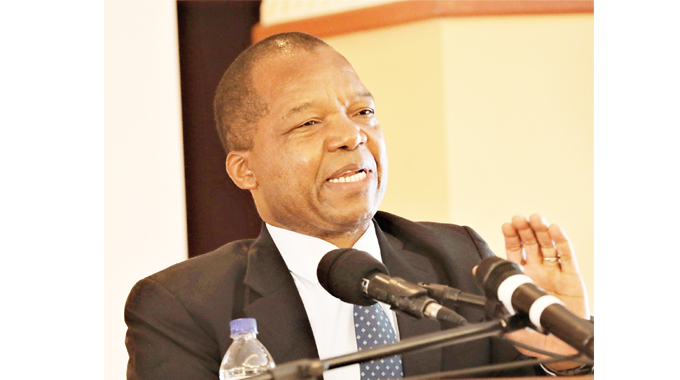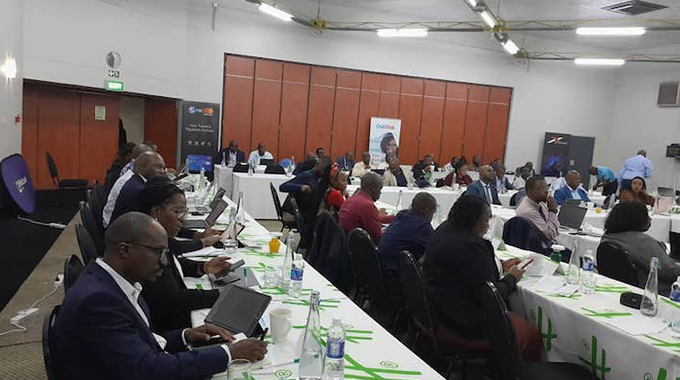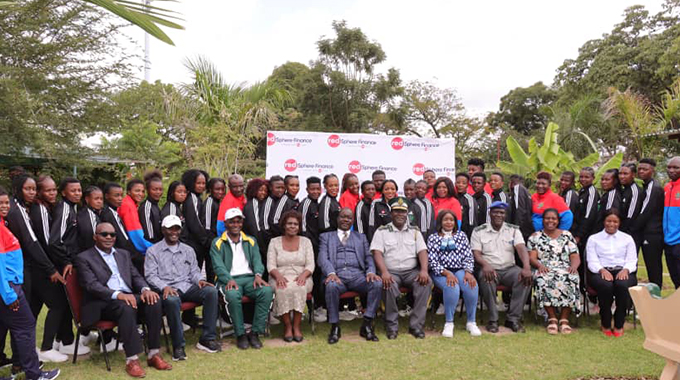Climate change aggravating human-wildlife conflict, private sector called to join the fight

Business Reporter
THE private sector has been urged to join hands with the Government in mitigating climate change-induced factors that are aggravating human- wildlife conflict in communities living close to national parks.
With such close collaboration with the private sector, the country will be able to mitigate the adverse impact of human wildlife conflict on livelihoods through relief provision measures to affected communities, a cabinet minister has said.
Conflict between wildlife, especially elephants, lions, hyenas, buffaloes, crocodiles, baboons and wild dogs are prevalent in communities that are adjacent to national parks where villagers have lost livestock, crops and in some cases, people being killed by wild animals.
Experts say climate change factors are aggravating the situation as humans and wildlife compete for limited resources such as water and pastures in order to survive.
This has resulted in significant decreases in crop yields in some areas while available grazing areas for livestock is also diminishing due to decreasing rainfall.
Environment, Climate, Tourism and Hospitality Industry Minister, Mangaliso Ndlovu, told delegates attending a strategic planning workshop in Vumba on Wednesday, that mitigate human wildlife conflict was critical in enhancing livelihoods and for the sustainability of the tourism sector.
As such he said principles for a new Parks and Wildlife Management Act have been finalised and that provisions of the proposed new Act will assist in addressing various challenges in the sector as well as empower Zimbabwe Parks and Wildlife Management Authority (Zimparks) towards more sustainable and resilient operations.
“We need to find a lasting solution to human-wildlife conflict. We are sitting on a time bomb and failure to provide relief to our people and the wildlife will have dire consequences,” he said.
“We also need to ensure that community benefits under the new CAMPFIRE frameworks are enhanced.”
Ndlovu said the ministry’s legal team should expedite the synchronisation of the new Act with the new proposed Statutory Instrument on CAMPFIRE.
He said the country continues to receive remarkable support from international cooperating partners in environment, climate and tourism programmes.
“Zimbabwe has been allocated US$13,2 million from the Global Environmental Facility 8th cycle and this is in addition to substantial amounts in the previous cycles,” said the minister.
“These resources have been used in various landscapes across the country to address environmental and livelihood issues. The thrust now with the GEF 8th cycle is to ensure we build a stronger and sustainable bio-diversity economy in Zimbabwe and in doing so, ensure that we meet our national and international environmental obligations and aspirations.”
Ndlovu said the impacts of climate change have the potential to slow down the attainment of National Development Strategy 1 and other climate-related policies and commitments such as the Nationally Determined Contribution and National Adaptation Plan.
In response, he said mainstreaming of climate change in order to climate-proof all the country’s socio-economic sectors have been the major thrust of the ministry.
Time and resources have been invested in national adaptation planning, to guide the response towards enhancing climate change adaptation across the country.
The private sector has also been urged to avail funding for climate change mitigation measures.
“There is need to mobilise international climate finances to supplement Government funding. Our local private sector can also play a significant role if we strategise and engage them, as we move into the future. I am glad to learn that FBC Bank has taken a lead to partner the ministry in this endeavour and my hope is we engage other stakeholders to come on board,” he said.












Comments